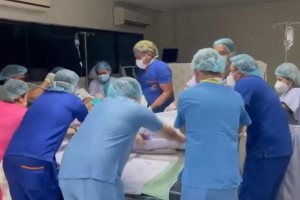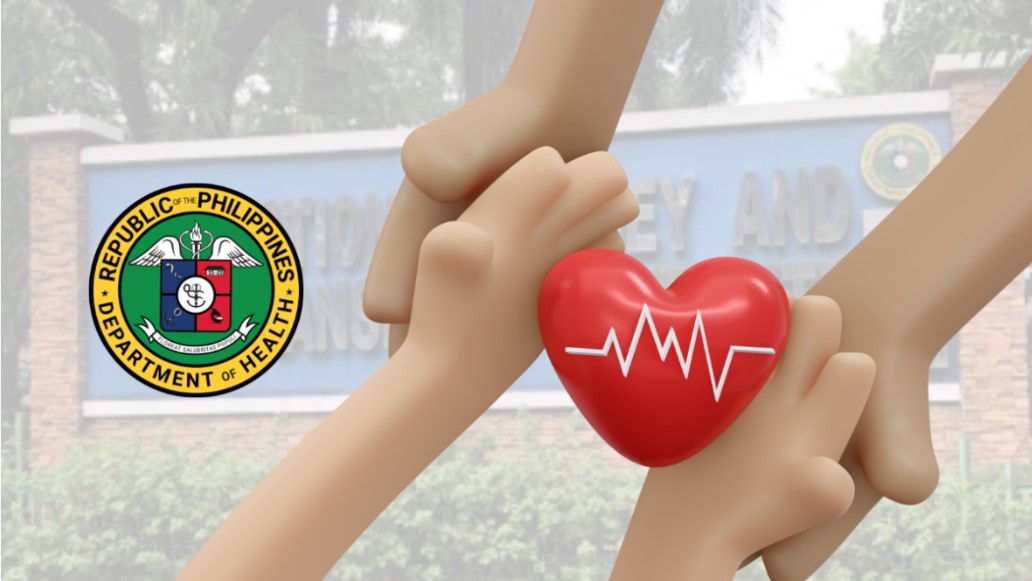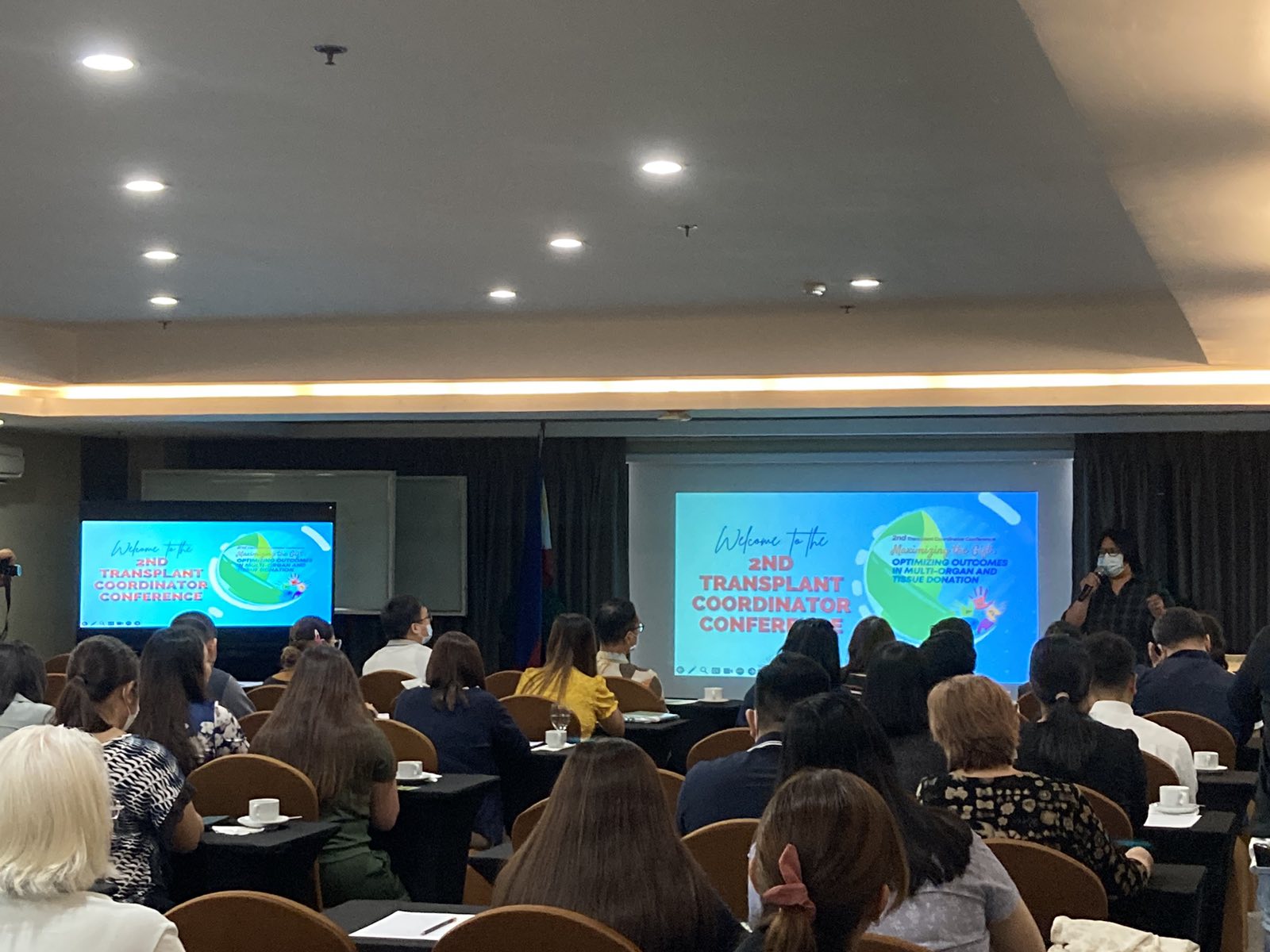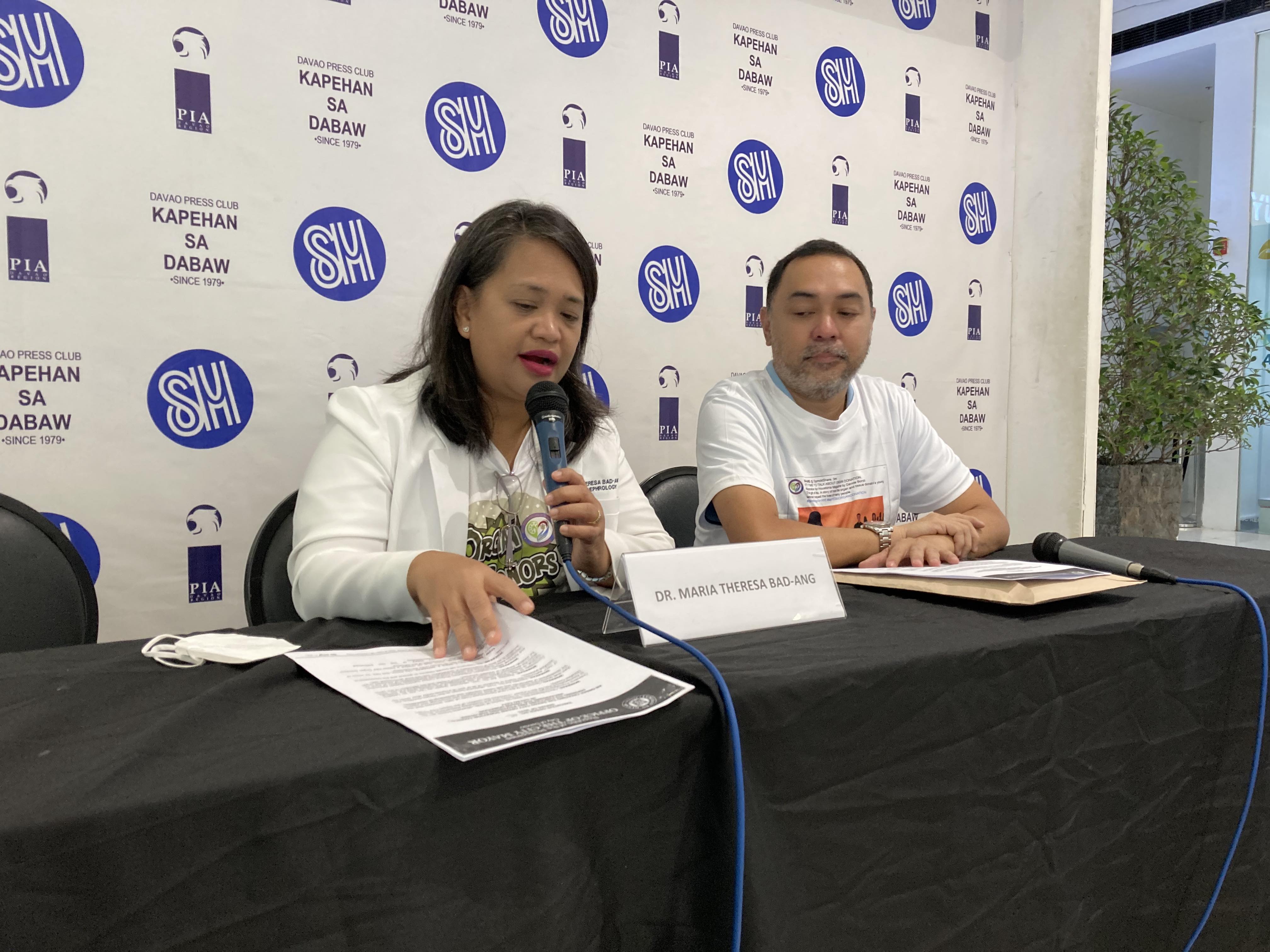Organ failures, such as those affecting the kidneys, liver, heart, and other vital organs in the human body, are among the leading conditions that continuously plague humankind and drain every patient’s resources.
Although healthcare offers supportive care such as dialysis, therapies, medicines, and much more to stabilize the conditions, these options only provide temporary relief, as in some cases, organ transplantation remains the practical solution to remedy these conditions.
While this is a light among patients suffering from organ failures, campaigns and advocacies on organ donation and attracting living donors in the most ethical way remain a big challenge.
Dr. Maria Theresa Bad-ang of the Philippine Society of Nephrology Mindanao said that although the record-breaking numbers of registrants who signed up for organ and tissue donation sign ups across the country is a significant development for the said advocacy campaigns, the current gaps between the increasing number of patients who need immediate organ transplant and the readily available organs for transplantation are still a huge problem.
In kidney diseases alone, Dr. Bad-ang reported that there are around 90,000 patients who are undergoing dialysis nationwide. In Davao region, a 10 percent increase in dialysis patients every year is seen, or an additional 100 dialysis patients per month.

She added that these numbers will not stop escalating unless organ transplantation becomes accessible to every patient, which is why they are resorting to and currently advocating deceased organ donation to address this gap.
This has been among the options that the state-run Southern Philippine Medical Center (SPMC) in Davao City is undertaking and promoting to strengthen organ donation in the region, aside from related-living donors, to cope with the increasing number of patients with organ failures.
Brain-dead patients as organ donors
According to Dr. Bad Ang, patients in a state of brain death have a functioning heart, but their brain has ceased functioning due to trauma resulting from accidents or underlying conditions like stroke.

“So ang mga brain dead kay katong wala nay reflexes, dili na sya able to think and breathe. Wala na sya nagaginhawa, ibig sabihin dili sya maka-talk, ‘di sya maka-feel kasi brain dead na sya… and (the patient is) dependent na sa machine. (So the brain-dead patients are those who don't have reflexes; they are no longer able to think and breathe. They're not breathing anymore, which means they can't talk or feel because they're brain dead and the patient is dependent on the machine),” Dr. Bad-ang explained.
She added, “So the moment nga madakpan namo nga namatay iyang brain, bago mag-arrest ang heart, i-ask gyud namo if they want an organ donation. Before they (doctors) would remove all those medicines (and machines) na makapabuhi sa iyaha pwede i-donate ang organs – kidneys, liver, heart, lung (because) sayang
However, she emphasized that this is only during the time that the heart is still beating because when it stops, blood clotting will form in these organs, which makes them unusable anymore.
Dr. Bad-ang said that organ donation can only take place if the patient has prior consent to donate his or her organs after his or her death, such as by signing an organ donation card or as reflected on the driver’s license, and with the consent of the families.
That is why Dr. Bad-ang emphasized that those who wish to donate their organs after their deaths must inform their loved ones and families about their desires so that the family will not be in a dilemma, which usually ends in rejection of the consent.
Retrieval and transplant processes for organ donors
Dr. Bad-ang revealed that the country has the highest demand for kidneys, followed by the liver, and then the lungs.
She said that the retrieval process begins after consent from the families is given. However, the conditions of the organs to be retrieved are checked and tested beforehand l to ensure that they are in good condition.
The recipient of the organ is also made ready as the harvest and transplant are done in succession, which will be performed by two separate medical teams: retrieval and transplantation.

Dr. Bad-ang emphasized that transplantation of the retrieved organs needs to be done immediately, as kidneys can only last for 48 hours, the liver is 12 hours, the heart is 4 hours, and lungs are 6 hours after being retrieved from a deceased donor.
However, the recipient is determined based on the national waitlist, which is managed by the Philippine Network of Organ Selling, the recipient's locality, and the compatibility of the recipient with the organ to be transplanted.
For kidney failures, those listed on the national waitlist are those who are undergoing dialysis and are waiting for kidney donors.
“The recipient will only be called kung na-match sa iyaha (The recipient will only be called once the organ is matched with him/her),” she explained.

She added that for a pair of kidneys, the first kidney will be matched to the area where it is retrieved; if it comes from Mindanao, it will be matched to the patients from Mindanao, while the second kidney will be matched to the patients in the entire country.
In the Philippines, Dr. Bad-ang said they have recorded 14 deceased donations for this year; all are from the National Capital Region.
In Davao region, they recorded their first deceased organ donor in 2021, wherein they retrieved a pair of kidney and eye tissues from a 21-year-old donor.
Dr. Bad-ang said the SPMC is always ready to perform both retrieval and transplant operations.
She added that other hospitals in Davao region that are capable of performing transplants are Davao Doctors Hospital in Davao City and the state-run Davao Regional Medical Center in Davao del Norte.
Deceased organ donation to combat unethical practices in living organ donation
Dr. Bad-ang emphasized that deceased organ donor is one way to stop paid donors, which she considered “unethical and taking advantage of those who do not have.”
Out of desperation, Dr. Bad-ang said that there are patients who resort to paid donors, “Right now we have a very difficult time because patients on dialysis daghan kaayo sila, they don’t like to be on dialysis, they want on transplant, so they are desperate
(We are in a very difficult time right now because there are so many patients on dialysis, they don't like to be on dialysis, and they want on transplant, so they are desperate).”
Amidst the rampant selling of organs, Dr. Bad-ang reiterated that organs from an individual who is not related to the patient are unsafe, noting that “they don’t know these donors, anong lifestyle nila.”
She added that only “living related” or “living emotionally related” to the patient is allowed to be an organ donor for that patient. This could be a patient’s siblings, parents, spouse, or even best friend.
Dr. Bad-ang said that this is not always the case, as there are patients who do not have family members or best friends, which is why promoting and making the public understand the benefits of deceased organ donation.

Strengthening the advocacy campaign
As consent from the families remains a challenge for deceased organ donation, Dr. Bad-ang said that they have been strengthening their information and education campaign to make people grasp deceased organ donation.
As part of their campaign, they are capacitating the doctors and nurses in the region, especially on how to approach the families of the patients to ask for consent by ensuring trust in the system.

“So trust the system, meaning dapat ang mga doctor pod gihimo ang tanan kasi the moment nga mag-approach ang transplant team mangayo og donor… kung dili sila happy sa pag manage dili mi (doctors) successful nga maka-ask og consent pod kay they didn’t trust us (So trust the system, meaning the doctors should do everything because the moment the transplant team approaches and asks for a consent... if the families are not happy with the management, the doctors will not be able to successfully ask for consent from them because they didn't trust the doctors),” she explained.
She added, “But if they trust the doctors they would say okay. Gihimo naman nato ang tanan (We did everything).” (ASO/PIA-Davao)






